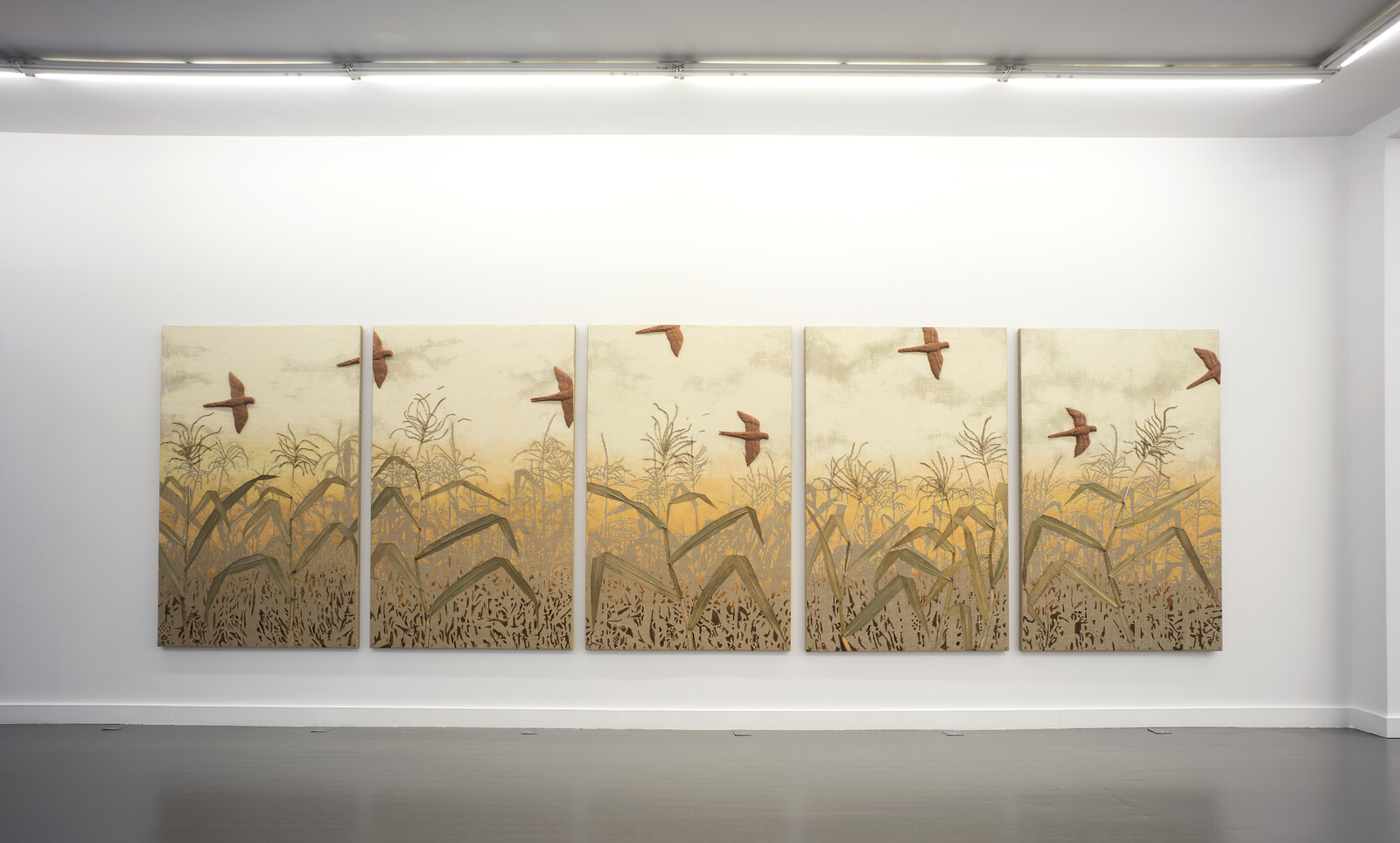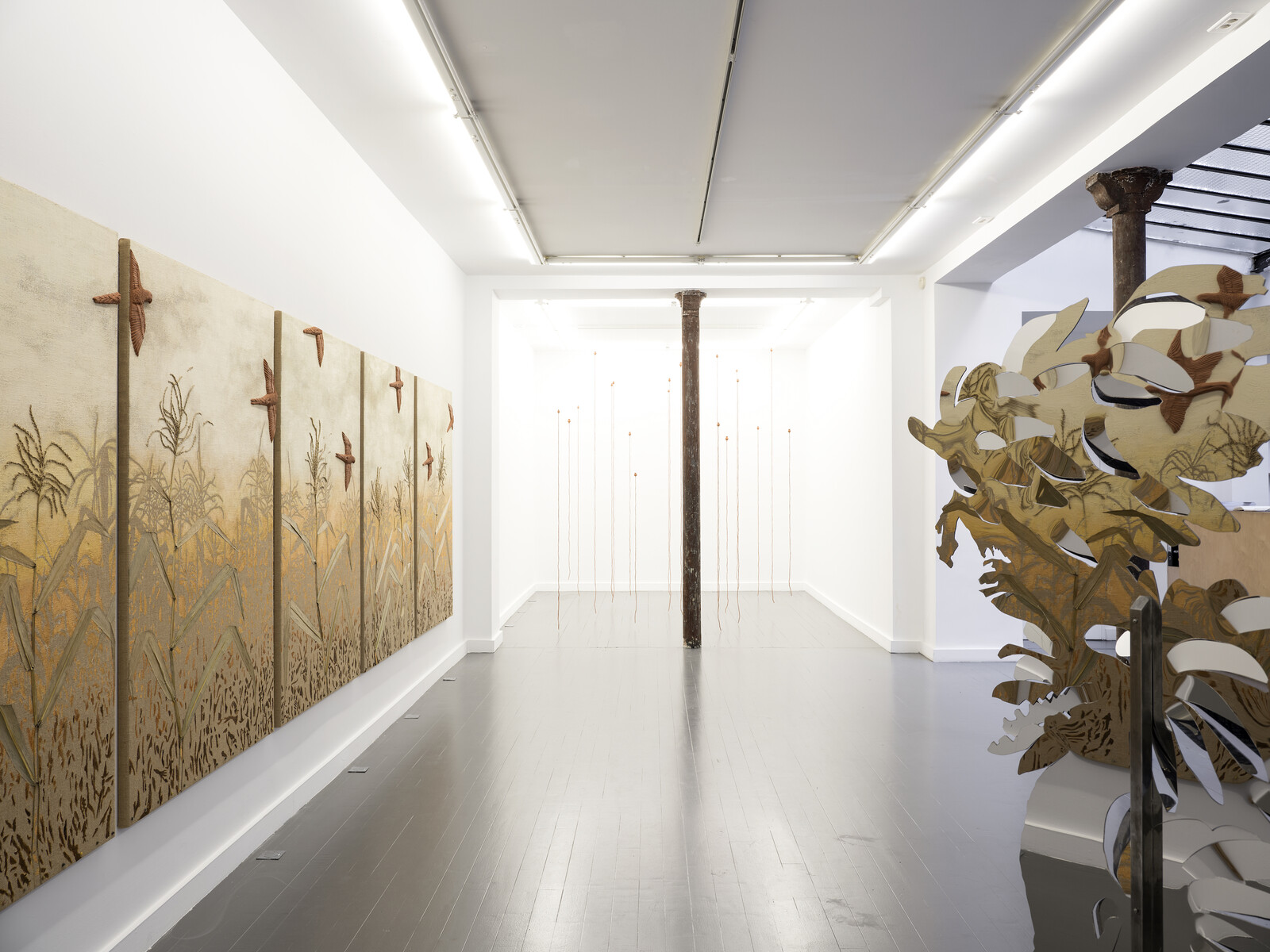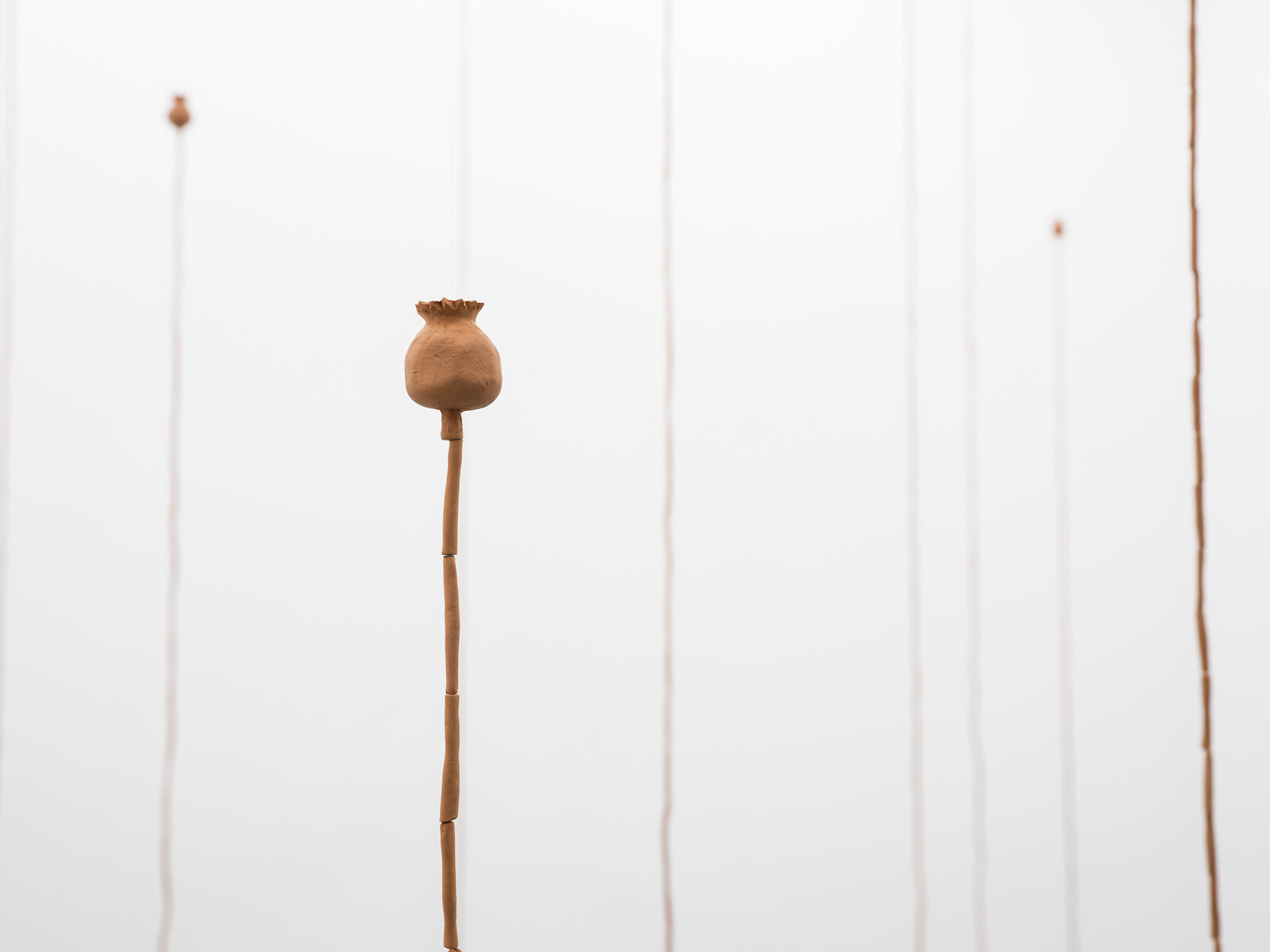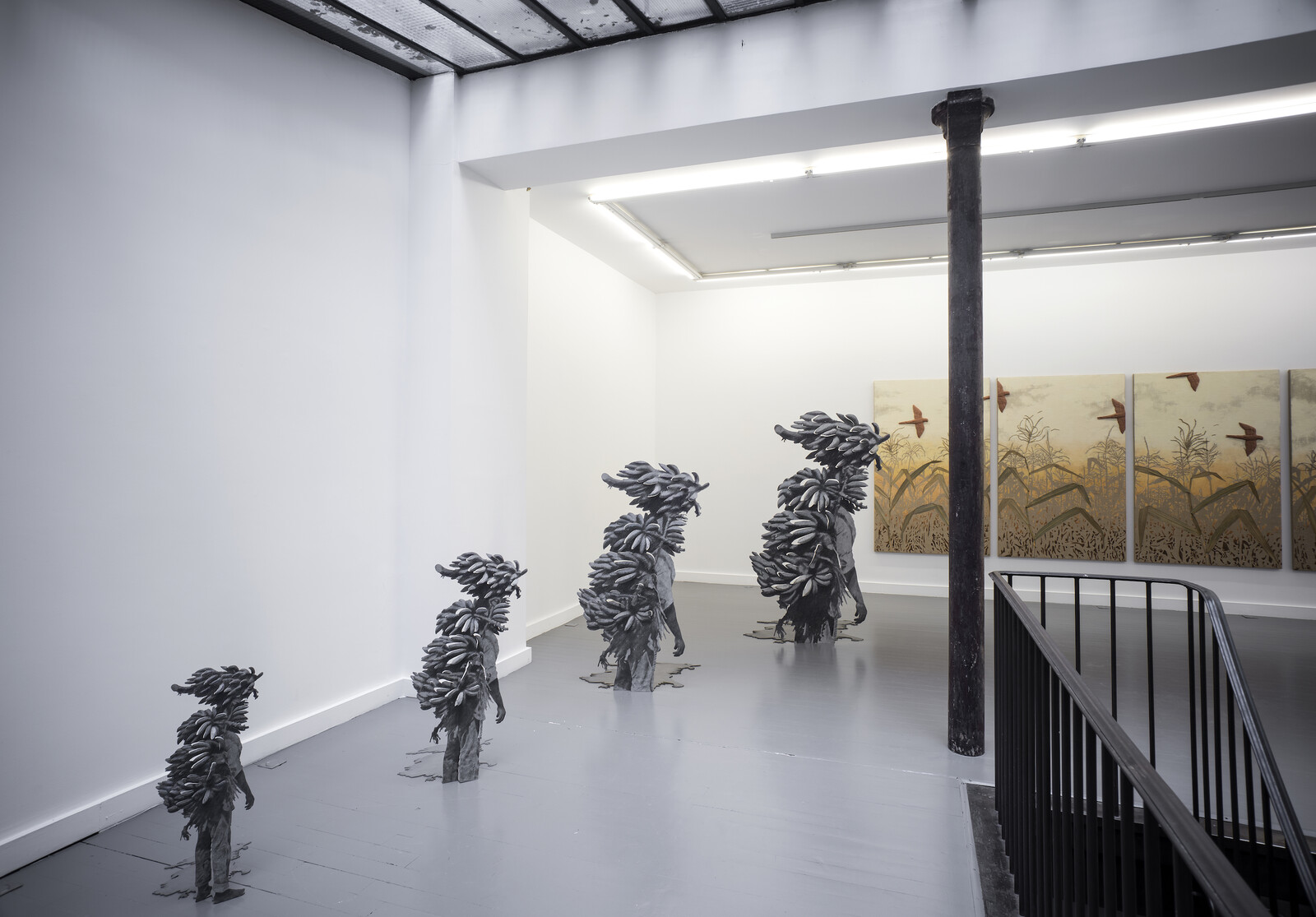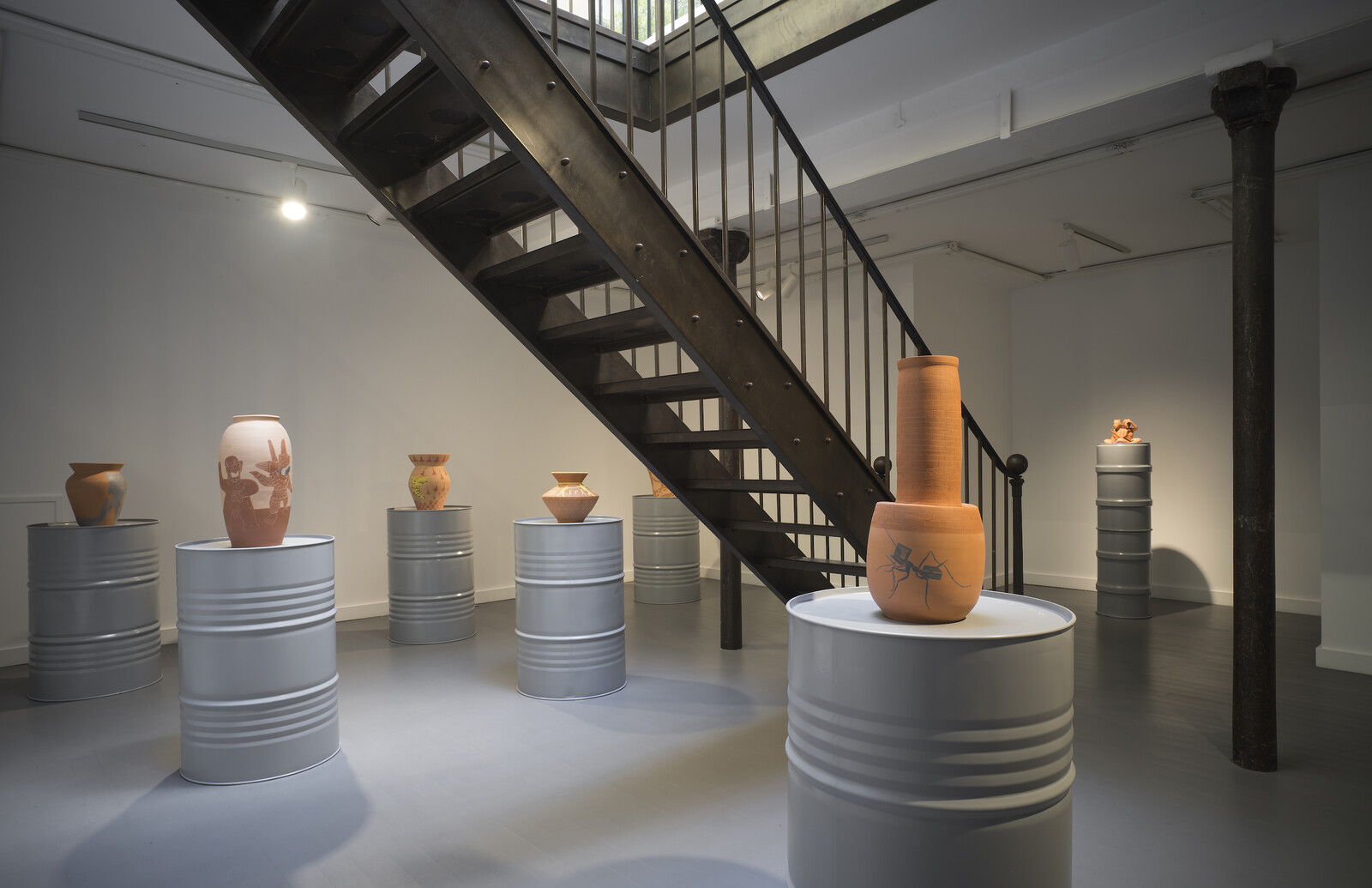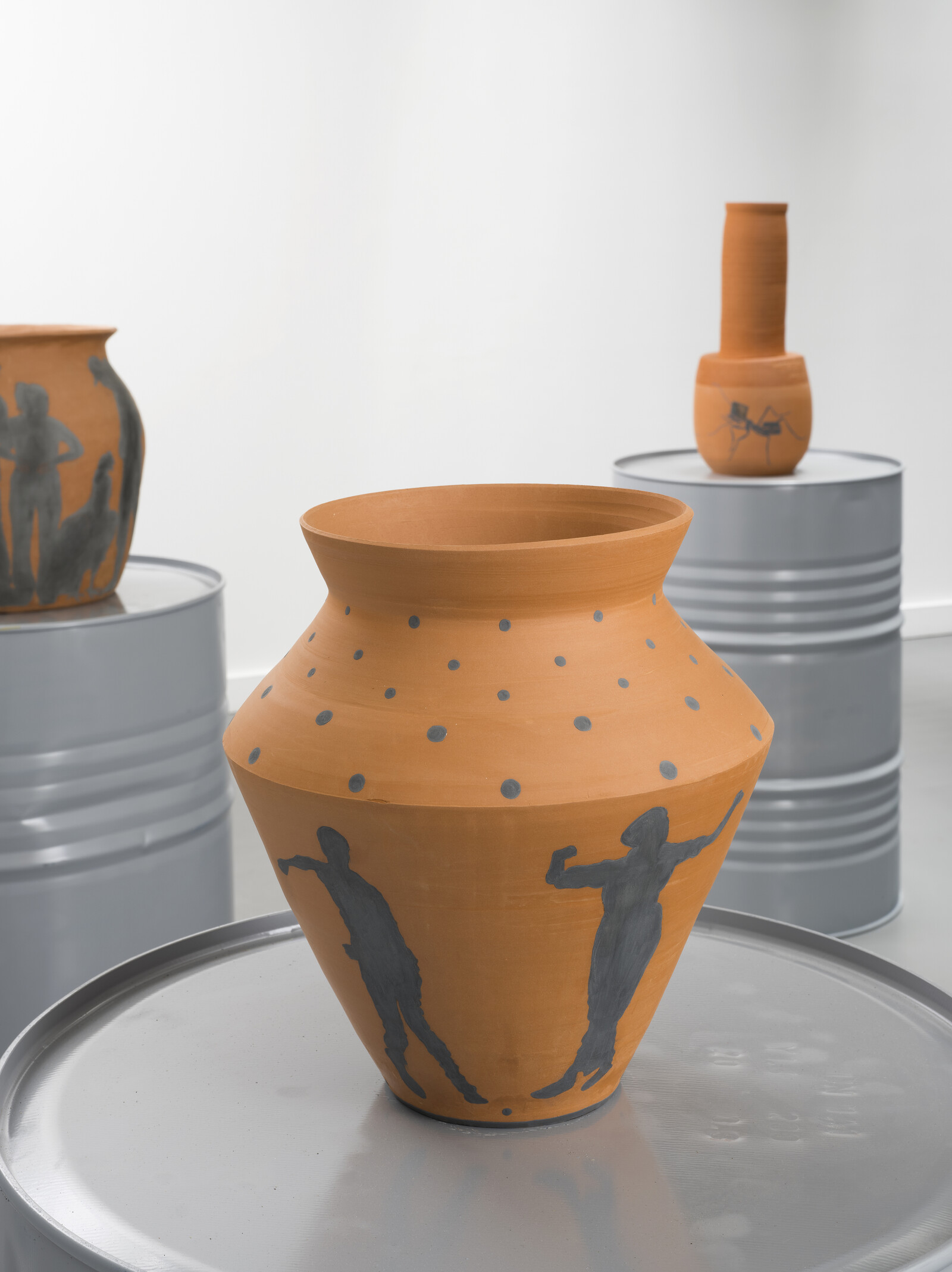It’s a rare artist who combines deep research into histories of colonization with the technical draughtsmanship necessary for near-photographic expressive figuration. This is the kind of work for which Daniel Otero Torres—a Colombian artist based in Paris—has become known. His detailed, hyper-realistic drawings on large, flat sheets of steel or aluminum reproduce archival photographs by adjusting scale and composition to create the larger-than-life creaturely figures that populate his installations. Taking cues from archaeology, magical realism, and mythology, the works include many visual references that address pre-Columbian histories across Latin America. In his newest work for “Las huellas del viento” (the exhibition’s poetic title translates to “the traces of the wind”) Torres extends these concerns to the industrialization and financialization of nature, a complex topic handled here with nuance. The show comprises steel sculptures, a five-panel wall work, a hanging installation, and a series of ceramic vessels, with each group exploring a different natural commodity—bananas, corn, and poppies—that has been intensively mono-cropped and tightly controlled in order to produce corporate wealth rather than communal resources.
Bananas are one of the world’s most popular fruits, and not by accident. The United Fruit Company, a twentieth-century multinational corporation, is largely credited with developing what would become a billion-dollar market, while it kept its Central and South American workforce living in poverty. For Caminantes (2022), Torres uses a 1913 photograph of an anonymous United Fruit Company worker carrying loads of bananas as the basis for four steel sculptures. He meticulously reproduces the photograph in graphite and color pencil on flat steel cut-outs, altering the image such that each successive figure brings a shift in scale until the man is nearly subsumed under the increasing weight of his load. It’s an apt visual metaphor for the exploitative labor of fruit farming.
Las huellas del viento (2022) is a series of five wall-works that assemble corn leaves, seeds, and ceramic sculptures of flying parakeets on burlap surfaces to produce a rich, atmospheric landscape of desolate corn fields. The fruitless corn stalks call to mind the destructive logic and litigious tactics of American agrochemical/biotech company Monsanto and their decades-long attacks on farmers, an insidious history of corporate violence resulting in lost livelihoods and dead ecosystems. And in Amapola (2022), strings of ceramic beads form thin poppy stems that hover just above the floor, rising to the ceiling in a room flooded with piercing white light. The work would feel gracious, even heavenly, if the poppy plant didn’t symbolise another form of hostile corporation, the drug cartel. In Mexico, where drug cartels are rampant and poppy farming is a direct supply line to the United States’ heroin and opiate industry, farmers labor under similarly egregious conditions and will never see the kinds of economic profits that the cartels, though technically illegal, obtain. Torres brings tremendous beauty to grim subject matter, and there’s a surprising optimism in his drugged-out opiate heaven and otherworldly visions of an already-occurring apocalypse.
The downstairs gallery, installed to capture something of the drama of an archaeological dig, shifts from commodity to container. “Objetos de culto” (2022), Torres’s series of nine unglazed ceramic vessels—mounted on steel drums and modelled after pre-Columbian, Greek, and Etruscan pottery used for storing food, seeds, water or other necessities—are painted with scenes that offer a more celebratory vision of collective human endeavours: techno-futurist hybrids, like a spider with a laptop head, or a shaman character with a VR headset, or a snake transforming into outstretched arms raised in joy or protest, connect technologies of past and present.
Given the topic, it’s not surprising that the press materials refer to Ursula K. Le Guin’s seminal essay “The Carrier Bag Theory of Fiction,” a popular reference point for artists working within ecological and anti-capitalist discourses. Torres takes a refreshingly literal approach to Le Guin’s poetic theorizing of vessels as the earliest human technology, demonstrating, through the juxtaposition of oil drums with the ceramic vessels, that carriers are not separate from their contents. Le Guin may not have been thinking of container ships, lithium-battery mining, or global extraction industries, but those too are pluralistic cultural containers, vessels driving capital in a contemporary knowledge economy. By considering how plants circulate as commodities in service of corporate interest, Torres locates the burden of natural capital in the bodies of workers. Too often the financialization of nature is used as a justification for its preservation; if something has a price, we’ll be more likely to save it. Torres makes a compelling aesthetic argument for the opposite: commodifying nature will not help us find a way out of our ecological crises, just as keeping workers impoverished can never be a part of just society.

